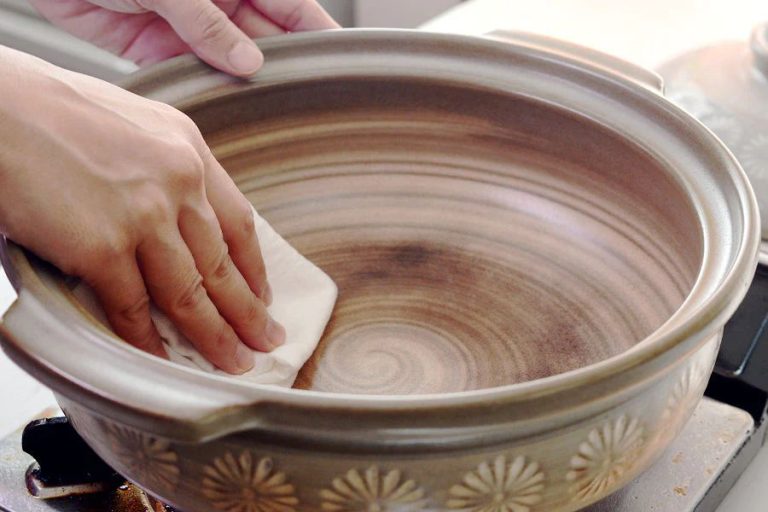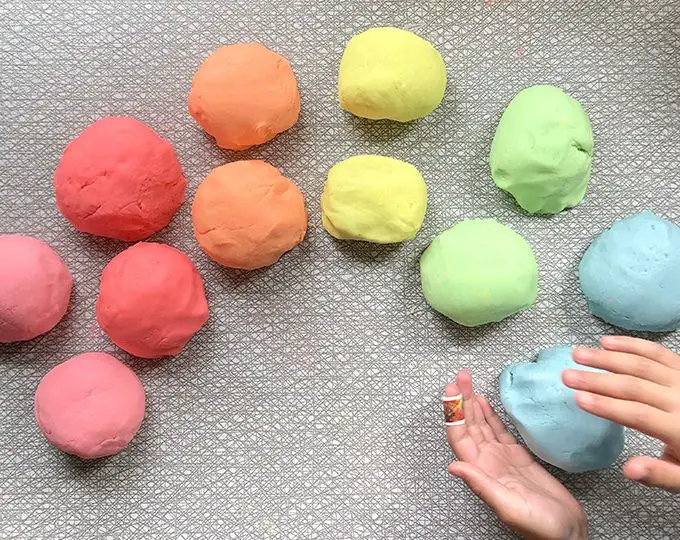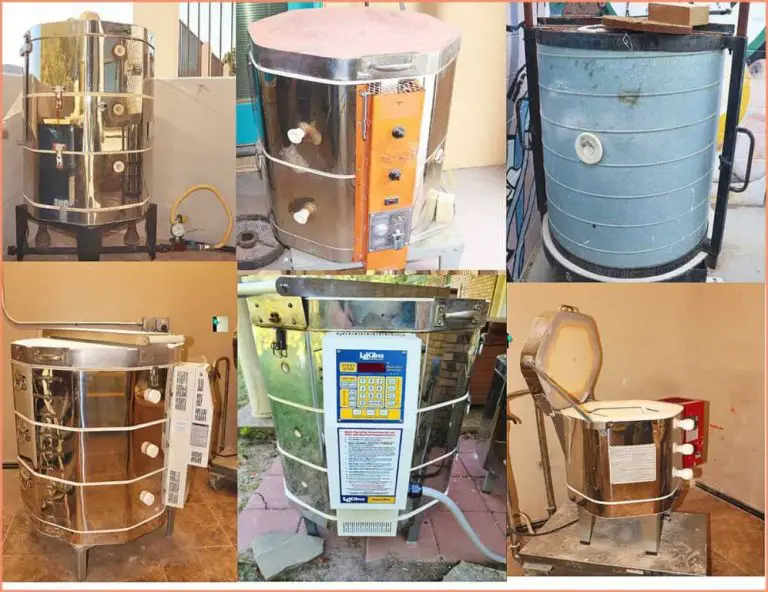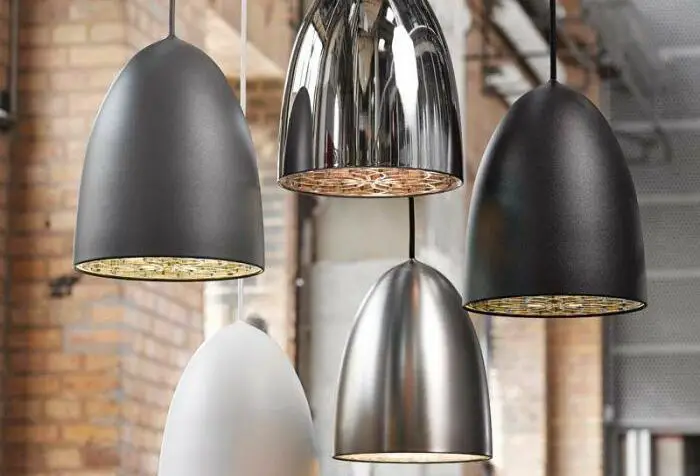What Age Is Appropriate For Pretend Play Kitchen?
Pretend play kitchens refer to toy kitchen sets designed for children to engage in imaginative role-playing games centered around cooking and other kitchen activities. These playsets typically include toy appliances, play food items, pots and pans, and other toy versions of kitchen tools and furniture.
Pretend play kitchens have grown increasingly popular as toys for young children in recent years. Parents and educators appreciate their ability to spark creativity and imagination in kids. However, there is some debate around what age is most appropriate for introducing pretend play kitchens. Some argue toddlers can benefit from these toys as early as 2 years old, while others feel ages 3-5 are more ideal. This article will explore the benefits of pretend play kitchens for different age groups and provide guidance on finding the right time to introduce them.
Cognitive Benefits
Playing with pretend play kitchens provides many cognitive benefits for young children. Interactive play kitchens promote roleplay and imagination as children pretend to cook meals, run a restaurant, or go food shopping (Source 1). As children engage in pretend scenarios, they develop their language skills and storytelling abilities. The conversations and narratives children craft while playing kitchen encourage vocabulary growth and verbal expression.
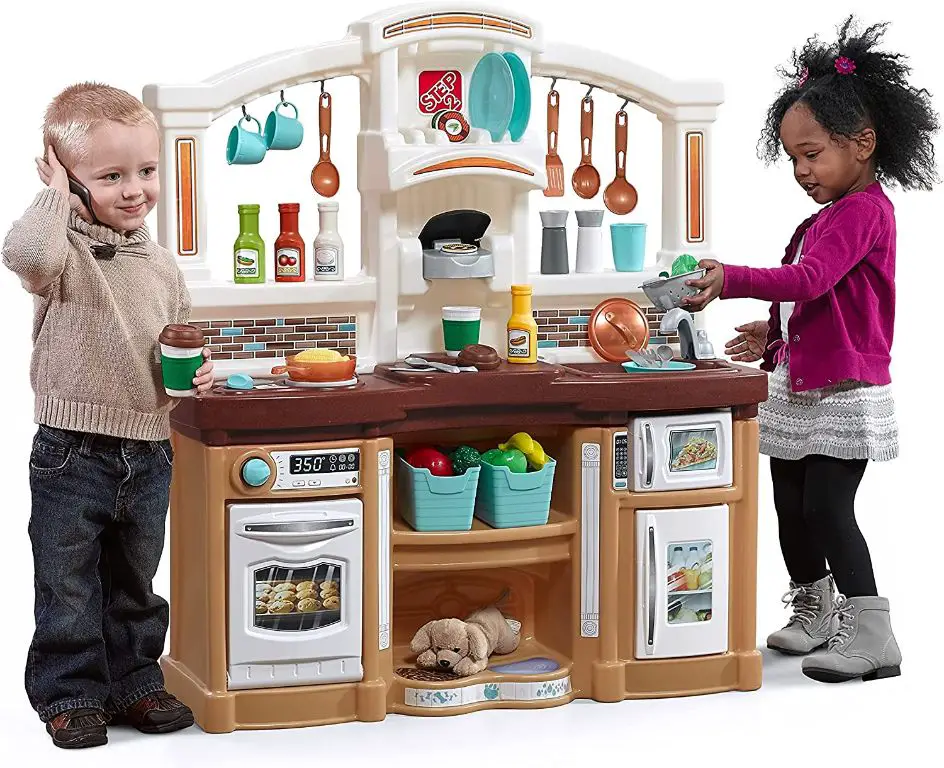
Additionally, kitchen dramatic play reinforces learning concepts like counting, sizes, shapes, and colors through repetition of daily living activities like setting the table or making a pretend meal. As children repeat these actions over and over in different ways, they gain a deeper understanding of basic cognitive principles (Source 2). Pretend play kitchens thus provide an engaging environment for children to develop cognitive abilities through imagination, language, and reinforcement.
Motor Skill Development
Playing with pretend play kitchen sets helps develop fine motor skills in young children through activities like stirring, pouring, and mixing imaginary foods (Learning Resources, 2022). As children role play cooking activities like slicing, scooping, and squeezing, they build dexterity and coordination in their hands and fingers.
Hand-eye coordination is also improved as kids manipulate kitchen toys, grasp utensils, and pretend to prepare meals (Plum Play, 2022). The repetitive motions of opening and closing doors, turning knobs, and flipping switches promote wrist rotation and precision. Over time, using a play kitchen set enhances overall control and strengthens the small muscles needed for tasks like writing and buttoning.
Self-Regulation Skills
Pretend play in a kitchen playset provides children with opportunities to build self-regulation skills, which are important for development and success in school [1]. Kitchen play promotes self-regulation in the following ways:
Taking turns: When children play together in a kitchen, they learn to take turns using materials and toys, wait patiently while others cook, and cooperate to decide who will play each role.
Controlling impulses: Pretend play requires children to resist impulses, follow rules of the game, and behave appropriately for their role. These skills help strengthen self-control.
Building focus: Engaging in extended pretend play scenarios (e.g. planning a meal, cooking, setting the table) builds children’s focus, attention span, and ability to stay on task.
Through imaginative kitchen play, children have fun while practicing essential skills like sharing, patience, impulse control, and concentration. These self-regulation abilities form a critical foundation for learning and development.
Social and Emotional Growth
Pretend play with a kitchen set promotes important social and emotional skills in young children. When playing cooperatively with others, children learn about collaboration, sharing, and negotiation. They have opportunities to express their emotions through role play, such as acting out feelings while pretending to cook a meal. Conflicts often arise during joint play as well, so a play kitchen provides a place for children to navigate disagreements and practice conflict resolution.
According to research from the University of Rochester, pretend play allows kids to work through complex emotions and strengthen their ability to understand others’ feelings and mental states. Dramatic play also boosts confidence as children experiment with taking on new roles and identities. The collaborative nature of a pretend play kitchen cultivates empathy, cooperation, and emotional intelligence in children.
Creativity and Problem Solving
Pretend play in a toy kitchen promotes creativity and problem-solving skills in children. As they engage in imaginative play situations and create narratives, kids learn to think flexibly and come up with unique solutions on their own. According to parenting experts, a play kitchen specifically provides opportunities for developing creativity through open-ended play (https://www.target.com/c/play-kitchens-pretend-food-dress-up-toys/creativity/-/N-5xt94Z56d6j).
When playing with a toy kitchen set, children may pretend to cook up an imaginary meal or run a make-believe restaurant. They will be motivated to invent recipes, source ingredients from around the house, and set the table – all of which involves creative thinking. As problems arise in their narratives, such as running out of a pretend ingredient, kids will practice using their imagination to substitute something else. According to early childhood researchers, this type of fluid, unstructured play fosters cognitive flexibility and divergent problem-solving abilities.
Recommended Ages
When considering an appropriate age for a pretend play kitchen, experts generally recommend starting around 18 months to 2 years old. According to Tiny Land, play kitchens are suitable for toddlers 18 months and up as they begin to engage in imitation and role play (https://www.tinylandus.com/blogs/collections/what-age-for-play-kitchen). Around 2 years old, children have the motor skills to meaningfully interact with a play kitchen and enjoy imitating household activities like cooking and cleaning.
A key safety consideration is choosing a play kitchen designed for the appropriate developmental stage. Look for rounded corners, BPA-free materials, and avoiding small detachable pieces for toddlers who may still put toys in their mouth. Sturdy construction is also important to withstand enthusiastic play. As children get older, more detailed play food, appliances, and accessories can enrich their pretend play without posing safety issues.
While play kitchens are often marketed for preschool ages, they can remain engaging past this stage. According to Reddit users, play kitchens often get substantial use up till ages 6 or 7, especially if new play scenarios are encouraged (https://www.reddit.com/r/toddlers/comments/xqkz2d/play_kitchen_for_a_one_year_old/). Open-ended toys allow for developing creativity and skills.
Parental Involvement
Parental involvement in pretend play with kitchen sets is crucial for maximizing the benefits for children. Studies show that when parents participate in pretend play by asking questions and interacting with the child, it helps facilitate cognitive, social-emotional, and language development (Kidkraft, n.d.).
Parents should engage with the child during pretend play by taking on roles and asking open-ended questions. For example, a parent can pretend to be a customer at the child’s pretend restaurant. The parent can ask questions like “What specials do you have today?” or “Can I get fries with my burger?”. This encourages the child to use creativity, problem-solving, and language skills.
By modeling pretend play scenarios, parents show children how to engage in collaborative, meaningful play. Taking on roles allows children to learn perspective-taking as well. Guiding the play with questions promotes critical thinking as children come up with solutions within the pretend narrative (Kidkraft, n.d.).
Setting Up a Pretend Play Kitchen
When setting up a pretend play kitchen, it’s important to include essential play items that spark creativity and imagination. According to playtolearnpreschool.us, key items include play food, pots and pans, cooking utensils, plates, cups, and more. Provide a variety of foods like fruits, vegetables, and proteins to allow for diverse roleplaying. Include pretends appliances like a stove, oven, microwave, fridge and sink. Offer accessories like aprons, chef hats, and kitchen towels to enhance realism.
When organizing the space, create designated areas for food prep, cooking, washing up, and eating to mimic a real kitchen layout. Use low shelves or containers so items are easily accessible. Label bins or baskets so children know where things belong. According to melissaanddoug.com, a well-organized play kitchen enables self-directed play.
For storage, wall-mounted cabinets or movable units on casters allow the space to be reconfigured as needed. Bins and baskets keep toy food, dishes and accessories organized when not in use. Clear containers allow kids to view contents easily. Having adequate storage space nearby helps keep the area tidy.
Conclusion
In summary, pretend play kitchens provide many important benefits for young children’s development. Playing with a kitchen set promotes cognitive growth as children engage in symbolic play. It also helps develop fine and gross motor skills as kids stir, pour, and carry different objects. Pretend play boosts self-regulation abilities and fuels social-emotional growth through roleplaying interactions. And of course, it encourages creativity, imagination, and problem solving as children invent scenarios and stories.
The ideal age for introducing a pretend play kitchen is generally between 2 and 5 years old. This allows children to get the most out of the developmental benefits. However, kids younger and older can still gain something from kitchen pretend play. Parents play an important role by providing accessories, getting involved in play, asking open-ended questions, and allowing child-led experiences.
Overall, a pretend play kitchen offers an engaging and educational playtime activity for young children. Parents are encouraged to set up a play kitchen and let their child’s natural curiosity and imagination lead to important learning through play.

